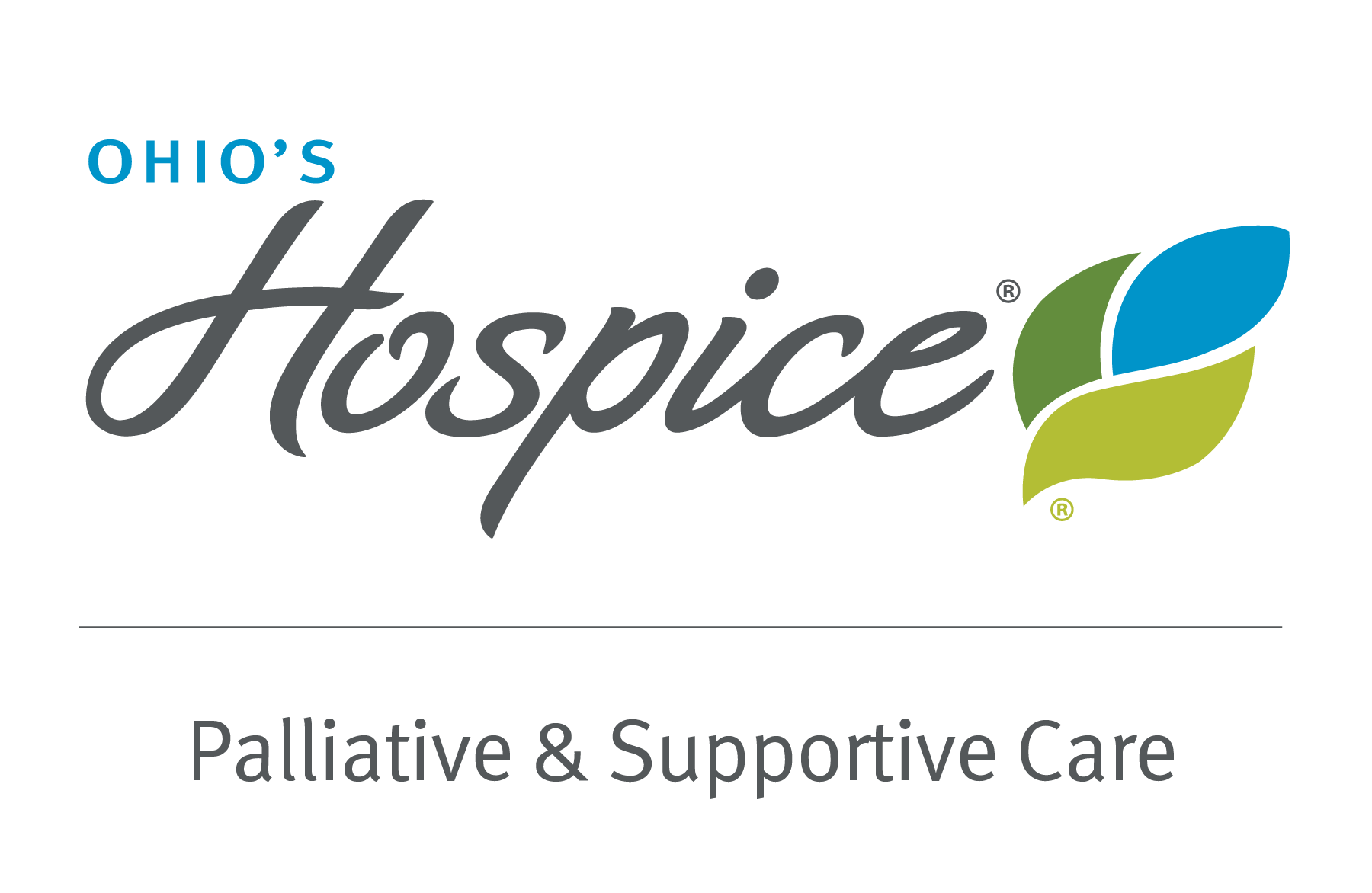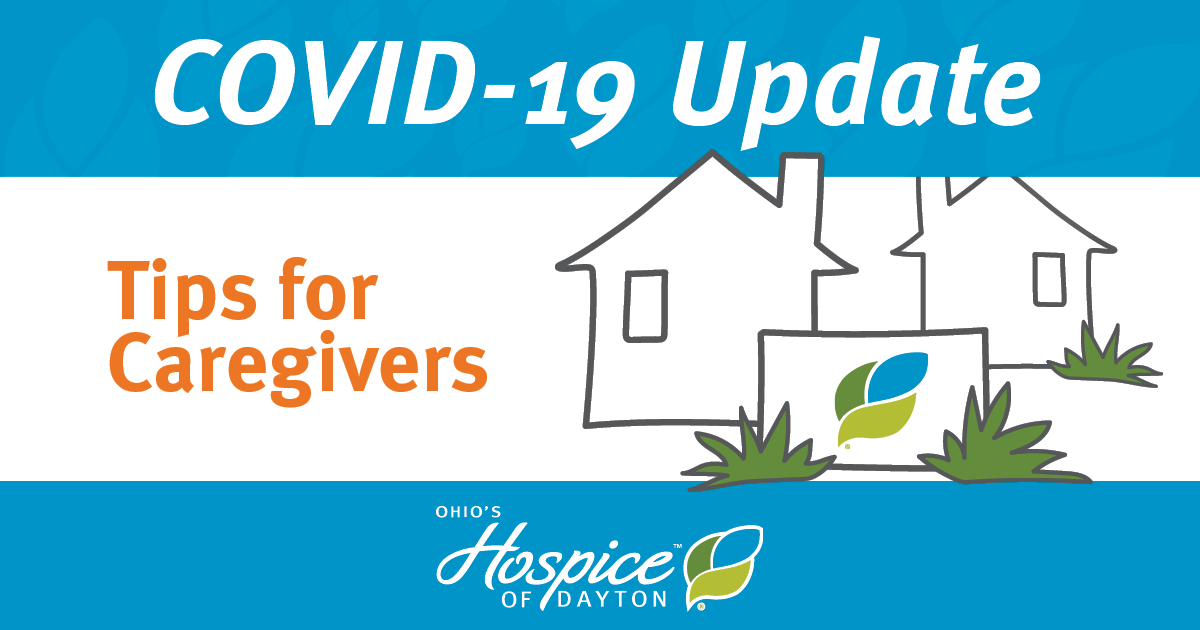
Tips for Caregivers: Preventing the Spread of COVID-19
If you are a caregiver caring for a loved one who is facing a life-limiting illness or disease, you know how important it is to protect your loved one from additional illnesses, especially during the COVID-19 pandemic.
Common COVID-19 symptoms include cough, fever, difficulty breathing, runny nose, sore throat, loss of taste and/or smell, and gastrointestinal issues. If you have these symptoms, you should take precautions around your loved one and contact your healthcare provider immediately.
“When a caregiver experiences symptoms of illness, especially COVID-19 symptoms, it is very important that they protect their very fragile loved one,” said Donnette Lowe, RN, BSN, CHPN, RN, with the Infection Prevention and Control/Employee Health Department at Ohio’s Hospice. “Alternate caregivers might need to be utilized. While a caregiver might have only a mild illness, infection with COVID-19 is likely to hasten the death of their loved one.”
She suggested the following tips to help caregivers prevent the spread of COVID-19 and protect their loved ones.
Tip 1: Cover your mouth and nose when coughing and sneezing!
Many infectious illnesses, including COVID-19, are spread through droplets from the respiratory system. When a person coughs or sneezes, these respiratory droplets are propelled into the surrounding environment with great force. The droplets from a sneeze can travel at speeds of up to 300 miles per hour. When we cover a cough or a sneeze, we stop the path of the disease-causing respiratory droplets. The best method is to use a tissue, dispose of it, and wash your hands. If no tissue is available, coughing or sneezing into the elbow area is preferable to the hand.
Tip 2: Wear a mask!
A mask keeps each person’s respiratory droplets to that person. If a cough or sneeze comes on without warning, the droplets are contained by the mask and do not contaminate the surrounding environment.
Tip 3: Contact your doctor if you are not feeling well!
If a caregiver is feeling unwell, they should contact their primary healthcare provider at the beginning of their symptoms. They should not wait several days to see if they can get better on their own. The sooner they are on the right course, the better it is for all involved. A person might suspect COVID-19 due to symptoms when, in reality, they are experiencing a totally different disease process. A professional is trained to interpret symptoms, and to order appropriate testing and medications.
Tip 4: Avoid gathering in groups of 10 or more and physical contact, such as shaking hands!
Gathering in a group of 10 or more may be detrimental to the health of those attending the gathering or others after the event. When a caregiver is involved in a social situation, they are sharing biological materials with others at the gathering. Shared surfaces are touched by numerous people; social distancing is often ignored; and masks are frequently not used.
“This provides the perfect environment for transmitting disease,” Lowe said. “The caregiver might not even get ill, but they can carry the respiratory droplets of an infected person into the home of their loved one on their hands, clothing, hair or objects. The compromised patient does not have the immune capacity to fight off disease and can become very ill and hasten their death.”
Tip 5: Wash your hands often with soap and water!
Washing our hands often with soap and water is something medical experts have been imploring us to do since the beginning of COVID-19. When someone is a caregiver to a patient who is in hospice care, this is even more important.
“Handwashing is the single most effective measure to prevent the spread of infection. Infectious diseases are spread through the chain of infection and handwashing interrupts this chain at any point it is used,” Lowe said. “Washing hands prevents the spread of respiratory, gastrointestinal and wound infections. Handwashing also protects the caregiver.”
In addition to these five tips, Lowe has a few more suggestions for caregivers, who are taking care of loved ones.
Screen visitors for symptoms of COVID-19
“Visitors in the home should be screened for symptoms of COVID-19, including cough, sore throat, shortness of breath, loss of taste and smell, gastrointestinal issues and temperature,” she said. “Those who are experiencing any of these symptoms should not be allowed to visit with the patient directly.”
Visitors can visit the patient through video conferencing apps, including FaceTime and Zoom. Or, they can visit the patient through a closed window and a phone.
Real-Time Care℠
To ensure that it is providing the best care to patients and families during the COVID-19 pandemic, Ohio’s Hospice is now offering Real-Time Care℠, a telehealth and support tool. Real-Time Care has been helpful to greatly reduce exposure to COVID-19 and maintain social distancing, while continuing to deliver care.
“Ohio’s Hospice is working diligently to ensure the safety of our patients, families, volunteers and staff during the COVID-19 pandemic,” Lowe said. “When a visit to a patient’s home is not feasible, the care team at Ohio’s Hospice now has the ability to perform video-based visits with patients and family members.”
Visitors should wear masks and sanitize their hands
Lowe also suggested that caregivers insist visitors in the home wear masks and sanitize their hands before entering. If face masks are not readily available, bandanas can be used for this purpose.
Visitors should practice social distancing
“It’s important to maintain a 6-foot social distance during visits in the home,” Lowe said. “If the space is small, the visitor can stand at the door.”
Part of social distancing includes not physically touching one another. The caregiver and visitors should not hug or shake hands. Visitors should not touch the patient or the items surrounding the patient.
Caregivers should sanitize their hands and consider wearing a mask
Caregivers should sanitize their hands before touching the patient. If a caregiver must be out in the community, it would be advisable to consider wearing a mask when providing care to the patient.
“By following these tips and suggestions, caregivers can take the appropriate steps to prevent the spread of COVID-19 and protect their loved one from this disease,” Lowe said. “We want caregivers to be able to spend as much quality time with their loved ones as possible.”
Author Profile
Latest entries
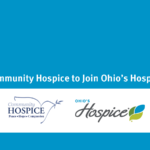 Media ReleaseJanuary 1, 2024Community Hospice to Join Ohio’s Hospice Strategic Partnership
Media ReleaseJanuary 1, 2024Community Hospice to Join Ohio’s Hospice Strategic Partnership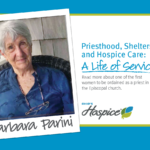 #CelebratingLifesStoriesNovember 21, 2023Priesthood, Shelters and Hospice Care: A Life of Service for Barbara Parini
#CelebratingLifesStoriesNovember 21, 2023Priesthood, Shelters and Hospice Care: A Life of Service for Barbara Parini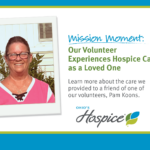 News and UpdatesJuly 28, 2023Ohio’s Hospice Volunteer Experiences Hospice Care as a Loved One
News and UpdatesJuly 28, 2023Ohio’s Hospice Volunteer Experiences Hospice Care as a Loved One News and UpdatesJuly 19, 2023The Not-for-Profit Difference
News and UpdatesJuly 19, 2023The Not-for-Profit Difference
